
 Flash News
Flash News
Berisha warns of new facts about the electoral farce: Don't forget that the laptop hasn't started talking yet
Berisha to gather political leaders tomorrow
Vote recount, KAS member: Less than 10% of ballot boxes have been counted, some candidates have undeserved ballots
Mother and son murdered, SPAK closes investigations into Festim Qoli and Talo Çela
They cultivated narcotic plants, the Lezha Prosecution completes the investigations for 3 people
Draft reports from Brussels expose 'government facade' towards integration
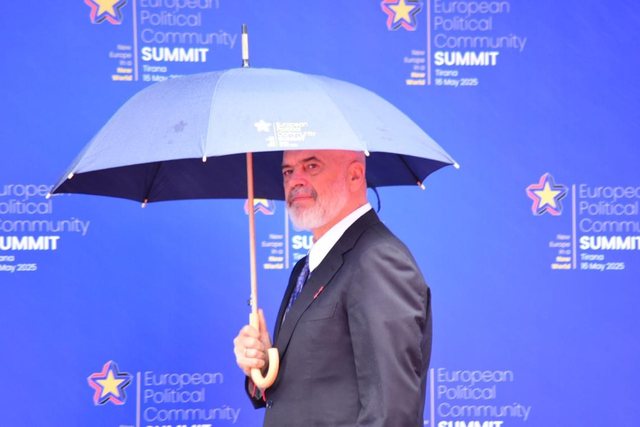
Through two unofficial documents sent to the Albanian government, the European Commission scans a worrying situation regarding the rule of law, the functioning of institutions, the fight against corruption and the situation of the media in Albania at a time when the basic group chapters in the accession negotiations have been opened.
Although still unofficial working documents, the reports express concern about a possible attack by the majority on the new justice institutions, for the non-implementation of Constitutional Court decisions, or for the violation of EU principles in the direct negotiation of public tenders.
Brussels' concerns are read by opposition representatives and integration experts as a call to attention to the government of Prime Minister Edi Rama and the Parliament for a real commitment to the integration process.
The chairwoman of the European Affairs Committee in parliament, Jorida Tabaku, told BIRN that the two documents sent to the Albanian government for the 'Fundamentals' show how far behind Albania is in achieving the criteria and objectives for the first chapter group.
This draft report raises concerns about 3 main elements, with Tabaku highlighting the one related to the role of the Assembly and its duties.
"The Assembly is the institution that has the most tasks to perform, but on the other hand, it is the institution that has violated all the standards that a normal parliament should have, from the legislative process, consulting on MPs' initiatives that have become a problem for the process, bypassing the normal legal procedure, to the election of heads of independent institutions, implementing the decisions of the Constitutional Court and culminating with the special 'Xhafaj' commission," says Tabaku.
According to Tabaku, this committee suppresses the work of the committee on European affairs, overlaps with the work of other parliamentary committees, and takes on responsibilities that do not belong to it.
The EC draft report is also assessed as a realistic document that clearly highlights the serious issues related to the fundamental chapters by Zef Preçi, executive director of the Institute for Economic Studies.
"In my assessment, the common denominator of this working analysis is the emphasis on the need to consolidate the achievements made, seeing this as closely linked to the continuation of the fight against corruption and organized crime, as the word 'corruption' is repeated 31 times followed by the word 'Parliament' 20 times," said Preçi, also mentioning other problems related to the rule of law, immigration management or media freedom.
Despite the fact that the document evaluates the achievements of the Special Prosecution Office, SPAK, according to Preçi, "for the EU, preventing corruption is important, which in turn is closely linked to the political will of the government and the activity of other state agencies, most of which are subordinate to it."
Preçi believes that the government uses a facade towards the integration process with approved strategies and legal initiatives, without having the financial means, human capacities and sometimes even the political will to implement them.
"From a similar perspective, the document dwells on the government's anti-corruption strategy, emphasizing the need for effective implementation with a focus on results, strong monitoring mechanisms, and institutional coordination for the success of this reform," he adds.
Preçi believes that the official report of the European Commission, which is expected to arrive officially in early July, will serve as a basis for the political-governmental program of the majority after taking office. Of course, he adds, "if there is sufficient political will to take governing steps for the benefit of a livable Albania."
For MP Jorida Tabaku, it is important that the government be serious in its commitments related to anti-corruption, focusing on the analysis that the documents drafted in Brussels make of the laws related to public procurement.
"Where there is higher corruption and sometimes corruption is done with laws in the procedures that are followed that allow for the violation of the Stabilization and Association Agreement, as in the case of the Vlora Airport, the Port of Durres," she says.
Tabaku also considers it important in the progress of the negotiation process to fulfill the criteria in the group of chapters related to the judiciary and the problems that justice reform has.
"It's time to do an analysis after 8 years, did it achieve its initial goals, is there less political influence in the system, has the number of files been reduced," she says, suggesting that the report raises the alarm about these chapters related to justice.
In this context, Tabaku emphasizes that the media and elections are issues that, according to reports coming from EU institutions, show a significant lack of results and are areas where the country has taken steps backward.
For Tabaku, fulfilling the objectives related to the fundamental chapters is crucial for progress in the negotiation process.
At the end of last year, the Albanian government held the second intergovernmental round table with the EU, where the 5 fundamental chapters for which the opening of negotiations is requested were opened.
The Albanian government's commitments relate to; 1) Functioning of Democratic Institutions; 2) Public Administration Reform, 3) Chapter 23, Judiciary and Fundamental Rights; 4) Chapter 24, Justice, Freedom and Security and 5) Chapter 5, Public Procurement./ BIRN
Latest news



Attempted to enter Albania with false documents, 25-year-old arrested
2025-06-19 14:18:20
Psychology explains what happens in the brain of a person contemplating suicide
2025-06-19 14:01:25

These are the coldest zodiac signs
2025-06-19 13:45:18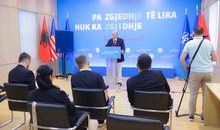

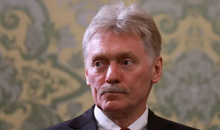

Albanian man dies in hospital after accident in Italy
2025-06-19 13:02:45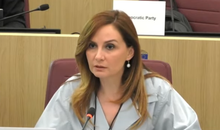


Berisha to gather political leaders tomorrow
2025-06-19 12:32:23
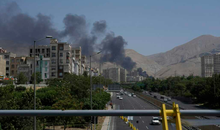
Iran confirms meeting with representatives of Britain, Germany and France
2025-06-19 12:11:33


The constitution of the Kosovo Assembly fails for the 34th time
2025-06-19 11:30:28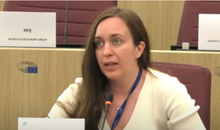
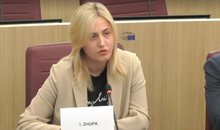

Albania's nuclear bomb!
2025-06-19 10:52:02
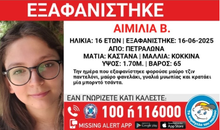
Prej 4 ditësh e zhdukur, humb gjurmët adoleshentja shqiptare në Greqi
2025-06-19 10:33:11
Choosing a child's name, expert reveals three key factors
2025-06-19 10:29:17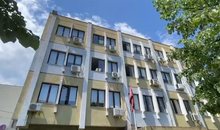
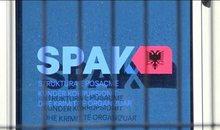
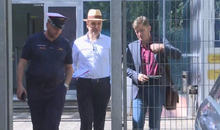
Another request for release from house arrest
2025-06-19 09:49:14
Who is the 18-year-old who stole the crown of "Miss Albania 2025"?
2025-06-19 09:41:37

Arrestohet punonjësi i shërbimeve funerale, vidhte në varrezat e Korçës
2025-06-19 09:13:03
Foreign exchange, June 19, 2025
2025-06-19 09:00:33
Montenegrin arrested in Spain for involvement in a structured criminal group
2025-06-19 08:55:04
BBC: Trump has approved the plan to attack Iran
2025-06-19 08:45:01
Draft reports from Brussels expose 'government facade' towards integration
2025-06-19 08:31:21
Horoscope, what do the stars have in store for you today?
2025-06-19 08:17:33

Morning Post/ In 2 lines: What mattered yesterday in Albania
2025-06-19 07:49:56

Zhulali: EU does not tolerate basic standards, membership is a political process
2025-06-18 22:40:09
Recount process/Këlliçi: DP seeks 14th mandate in Tirana
2025-06-18 22:11:20
Hell in the Gjadri camp, 45 attempted injuries and violent protests
2025-06-18 21:49:49


Israel strikes National Police headquarters in Iran, several injured reported
2025-06-18 21:29:11




Why World War III is 'speaking', and the Albanian PM Rama is silent
2025-06-18 20:08:03
Avoid drying towels in the sun, here's how to keep them soft
2025-06-18 20:07:53

Cannabis legalization in Albania, new law, old risks
2025-06-18 19:39:54

Pope Leo XIV calls for peace: Advanced weapons are temptations we must reject
2025-06-18 19:22:29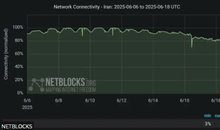
Iran faces near-total internet blackout
2025-06-18 19:07:09

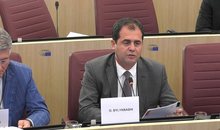
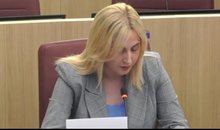

INSTAT: Heart diseases, the leading cause of death in Albania during 2024
2025-06-18 18:05:33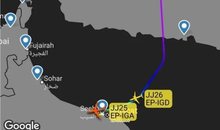



Trump does not rule out the possibility of striking Iran
2025-06-18 17:19:35
Accident on the Grand Ring Road, two cars collide
2025-06-18 17:05:57
Kume: Vote recount increases credibility
2025-06-18 16:59:38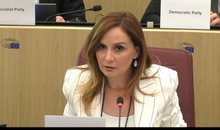
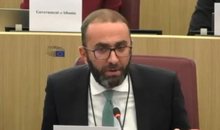

Ndërron jetë ish-futbollisti dhe trajneri i njohur shqiptar
2025-06-18 16:17:02
EU calls for "comprehensive reforms" for the media in Albania
2025-06-18 16:06:20
Macron convenes France's Defense and Security Council
2025-06-18 16:04:29
Israeli attacks in the last 24 hours, at least 140 killed in Gaza
2025-06-18 15:58:13
Reflection on Rama's kneeling before Meloni
2025-06-18 15:52:53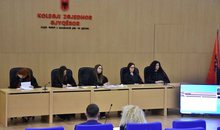

Conference League second round draw, Albanian teams learn potential opponents
2025-06-18 15:29:29

Eurostat 2024: Prices in Albania are catching up with EU levels
2025-06-18 15:07:03
War/ Why is Russia hesitant to help Iran in its conflict with Israel?
2025-06-18 15:00:19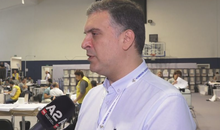
Blushi: Ilir Meta's voice will resound louder than ever in the new Parliament
2025-06-18 14:50:42
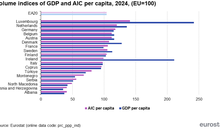

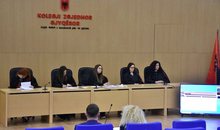
The Electoral College also rejects the DP's complaint for Kukës and Gjirokastra
2025-06-18 14:09:49
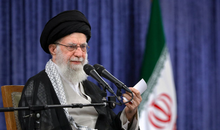
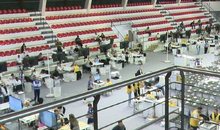
The College rejects the DP's request for invalidation of the elections in Lezha
2025-06-18 13:41:57
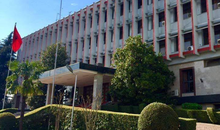
Evacuation of 5 Albanians from Israel, 3 of them arrive in Albania
2025-06-18 13:23:34
Amidst chaos and abuse, is Albania ready to offer sustainable tourism?
2025-06-18 13:01:56

SMILE.al - 5 years of history, the best version of success!
2025-06-18 12:42:25

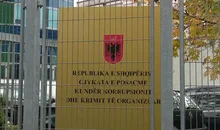

Causes of death in Albania, heart disease leads, suicides increase
2025-06-18 11:47:36
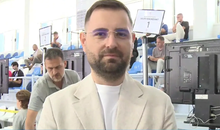


The claim for Jorgo Goro is postponed
2025-06-18 10:59:17
